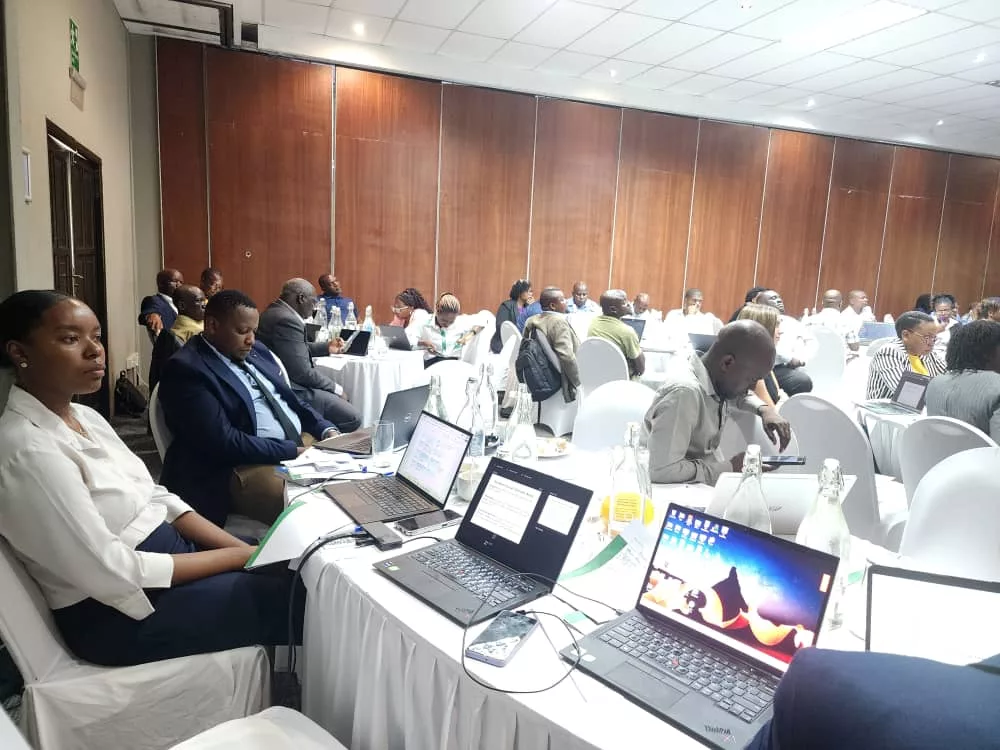|
Getting your Trinity Audio player ready...
|
Stakeholders from diverse backgrounds are holding a critical consultation meeting in Harare on strengthening Zimbabwe’s climate commitments under nationally determined contributions (NDCs).
In his opening remarks read on his behalf by Mr. Lovemore Dhoba, Acting Director of the Climate Change Management Department, the Chief Director of Climate Change and Meteorological Services in the Ministry of Environment, Climate and Wildlife, Mr. Washington Zhakata said stakeholders are gathering at a pivotal moment in Zimbabwe’s climate action journey.
“It is a moment that requires collective wisdom, strategic dialogue, and unwavering commitment to ensure that our Nationally Determined Contributions (NDCs) remain ambitious, realistic, and aligned with both our national priorities and global commitments under the Paris Agreement.
“As we meet here today, we are reminded of the absolute realities of climate change – extreme weather events, prolonged droughts, and shifting agricultural patterns – that threaten our food security, water resources, and economic stability. The first global stocktake under the Paris Agreement has underscored the urgency of raising our climate ambition, especially for developing nations like ours that bear the brunt of climate-induced challenges despite contributing the least to global emissions,” he said.
Zimbabwe has made significant strides in strengthening its climate response. From the initial NDC submission in 2017 to the revised NDC in 2021, our country has continuously refined its commitments to enhance climate resilience and low-carbon development. NDC 3.0 represents the next phase – one that builds on lessons learned, integrates sector-specific targets and strengthens financing mechanisms to drive sustainable implementation.
The development of NDC 3.0 follows a structured process, beginning with the submission of a Country Statement to the UNFCCC Secretariat by the 10th of February 2025. This will be followed by an in-depth process to develop a Detailed and Long Version of NDC3.0, which will guide sectoral climate actions for the period 2025-2035. The Government of Zimbabwe, with the support of development partners including NDC Partnership, UNDP, UNICEF, and UNEP, will ensure that this process is inclusive, scientifically sound, and aligned with national and global priorities.
“This process is not just about compliance with international agreements; it is about securing a resilient and sustainable future for Zimbabwe. Our revised NDC 3.0 must be ambitious yet practical, reflecting Zimbabwe’s socio-economic realities while positioning us to leverage global climate finance opportunities,” Mr. Zhakata added.
Addressing the same gathering, Richwell Musoma, the UNDP Zimbabwe’s NDC Partnership In-Country Facilitator, said over the next two days, stakeholders will engage in a comprehensive review and validation process to ensure that Zimbabwe’s updated climate commitments are robust and inclusive.
“In alignment with the Paris Agreement, Parties (Zimbabwe included) are required to submit and periodically update their Nationally Determined Contributions (NDCs) to reflect their commitments and express their ambitions to reduce greenhouse gas (GHG) emissions and enhance resilience to climate-related impacts also paying special attention to issues of gender and inclusivity. Zimbabwe recognises the urgency of addressing climate change and has embarked on a process to develop its 3rd generation NDC (NDC3.0) to the United Nations Framework Convention on Climate Change (UNFCCC).
“Zimbabwe’s NDC3.0 will articulate the country’s targets for reducing greenhouse gas emissions, outline specific adaptation measures, and highlight the synergies between climate action and national development goals. As we move forward, this document serves as a critical reference point for understanding Zimbabwe’s climate commitments, the strategies proposed for implementation, and the anticipated outcomes of these efforts. By revising its NDC, Zimbabwe reaffirms its dedication to building a resilient and sustainable future for its people, while contributing to the global fight against climate change,” Musoma said.






